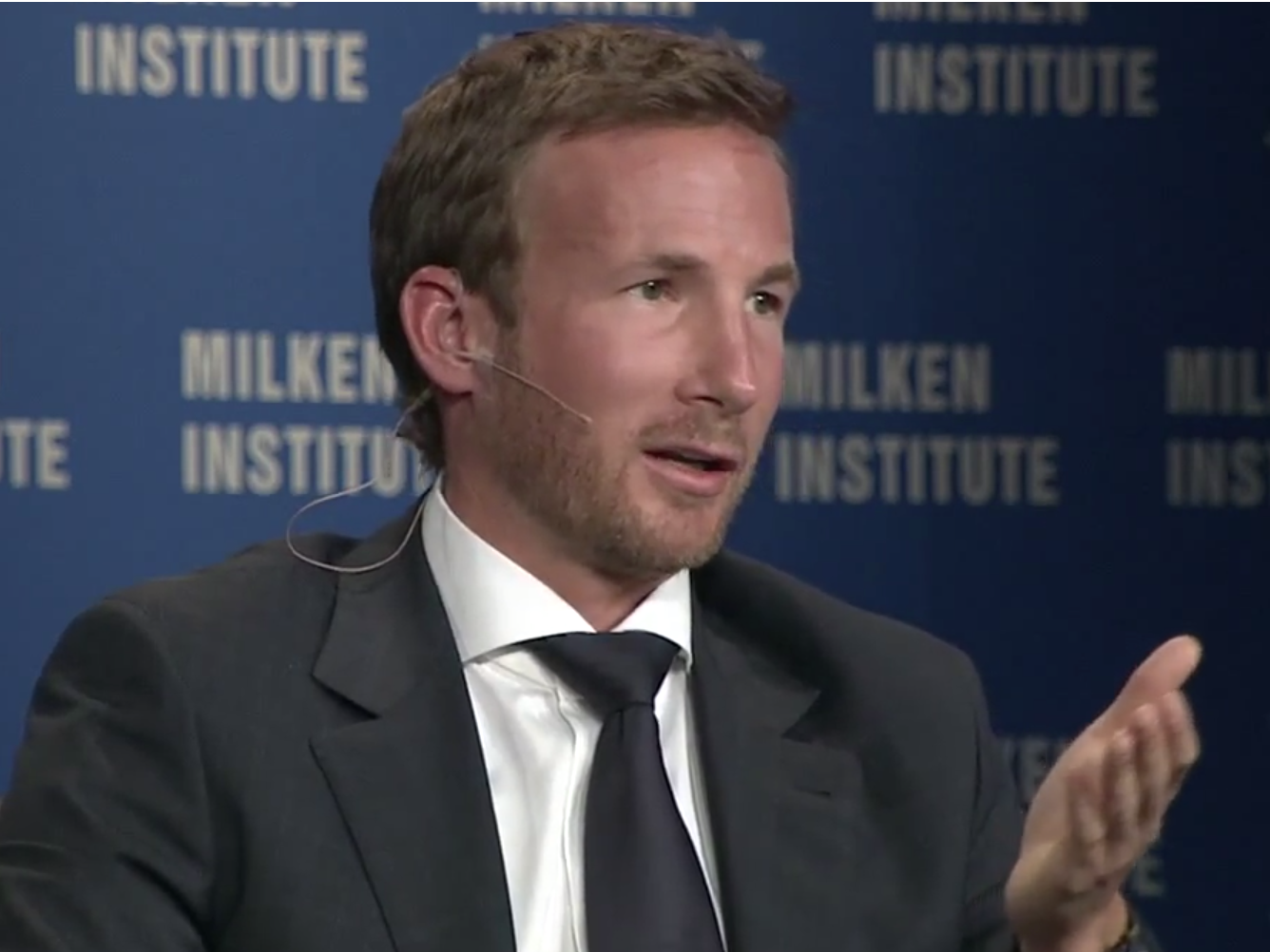 Jason Karp.Milken Institute
Jason Karp.Milken InstituteThe stock market’s seemingly endless gains don’t make much sense, according to a $3.7 billion hedge fund.
More than eight years into the market’s latest bull cycle, the second-longest on record, stocks have rallied notably since President Trump was elected in November.
“People are just paying significantly more for assets without any fundamental improvement in those assets,” Tourbillon Capital’s Jason Karp wrote in a recent letter to investors that was reviewed by Business Insider.
Karp was referring to stocks’ gains in the first quarter, which were heavily marked by tech. He wrote that “greater than 100% of the return came from multiple expansion without any corresponding revision upwards in earnings.”
He added: “It was often the most crowded securities with the most undeniable themes that fared the best in Q1, as big multiples got bigger while fundamentals remained the same.”
Karp highlighted Apple as an example, which recently surged “without any notable improvements in consensus future earnings or prospects.” By contrast, Karp’s fund owns several long positions that “have materially improved their future earnings/EBITDA potential” yet have not gone up in price.
Tourbillon’s main fund, which manages about $2.9 billion, was down 4.1% net of fees through May of this year, according to investor documents. The fund has a 19.6% net exposure to the market. Tourbillon managed $3.7 billion as of February this year.
Stocks have continued their upward gains since Karp wrote his letter several weeks ago. Investors have placed their most bearish position ever on VIX futures, signalling a bullish wager on the S&P 500.
Karp is optimistic about his firm’s long-term investment strategy, however, even as money flows to “fast-money” and data-driven strategies.
 IBM quantum computer scientist Jerry ChowIBM
IBM quantum computer scientist Jerry ChowIBM
The rise of big data has brought “more dislocations resulting from market participants putting undue emphasis on near-term trends while often times ignoring the secular and cyclical forces at play over the medium to long-term,” he wrote.
Tourbillon is finding opportunities investing in companies going through so-called special situations – mergers, bankruptcies, and the like – partly because of how quant strategies work.
“Many quantitative strategies purposely exclude issuers with limited price history like IPOs/Splits/Spins/etc. from their algorithms,” he wrote, adding that “certain special situations are initially excluded or removed from indices, temporarily reducing the influence of passive investors … That leads to structural inefficiency.”
SEE ALSO:A Wall Street legend is taking on the $265 billion giant behind Kit Kat, Butterfinger and Nescafé
NOW WATCH: JIM ROGERS: The Fed is clueless and is setting us up for disaster











